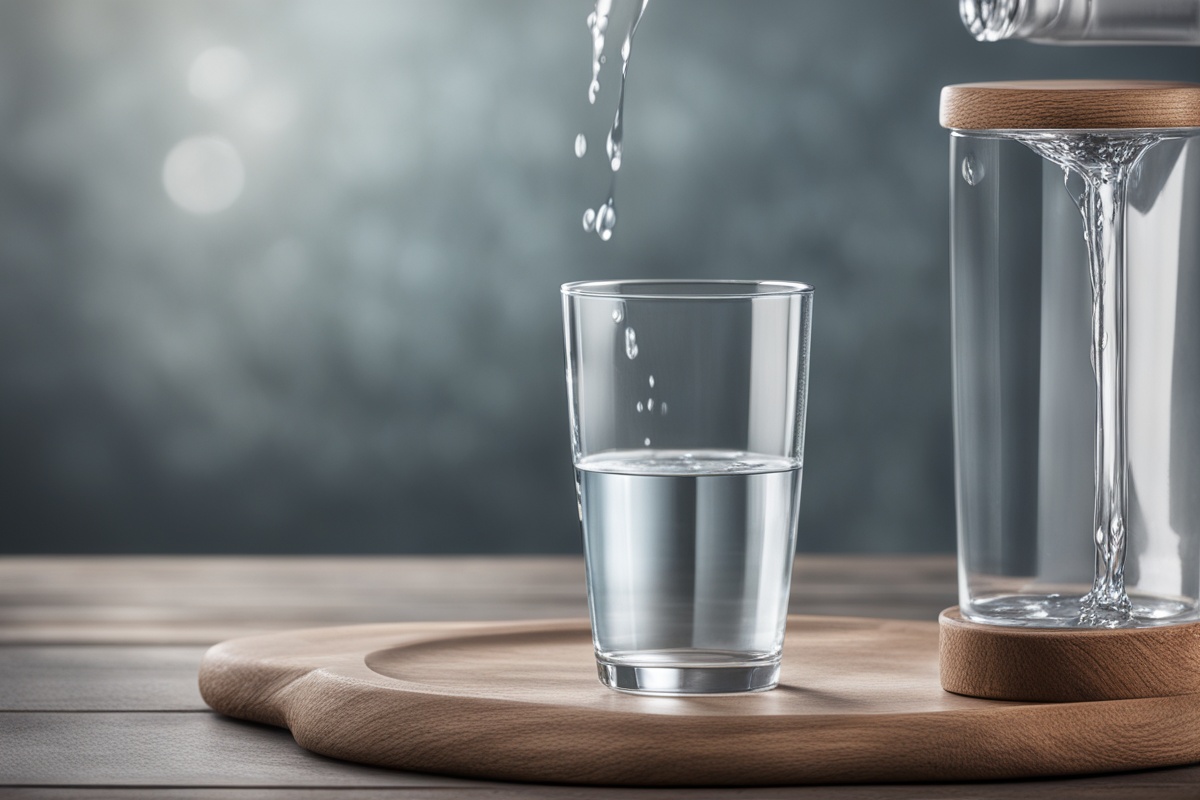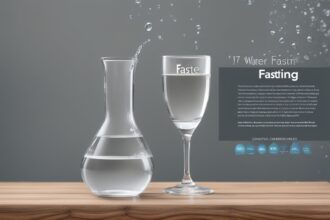Water fasting, a practice of abstaining from all food and drink except water for a specific period, has gained significant attention in recent years for its potential health benefits. Many individuals turn to water fasting as a way to detoxify their bodies, improve mental clarity, and promote owellnessellness. In this post, we’ll explore the concept of water fasting and dive deep into the Water Fasting health benefits that have made it a popular choice for health enthusiasts. Whether you’re a beginner or an experienced faster, understanding these benefits can help you make informed decisions about incorporating this practice into your lifestyle.
What Is Water Fasting?
Water fasting is a type of fasting where an individual consumes only water for a set duration, typically ranging from 24 hours to several days. Unlike other forms of fasting, such as intermittent fasting or juice fasting, water fasting eliminates all caloric intake, allowing the body to enter a state of ketosis and autophagy. This process is believed to trigger many of the Water Fasting health benefits that researchers and practitioners often discuss. While short-term water fasts can be done safely by most healthy individuals, longer fasts should always be supervised by a healthcare professional to avoid potential risks.
Promotes Detoxification and Cellular Repair
One of the most widely discussed Water Fasting health benefits is its ability to support detoxification and cellular repair. During a water fast, the body shifts its focus from digestion to internal cleansing. This process, known as autophagy, allows cells to remove damaged components and recycle them for energy. Studies suggest that autophagy may play a role in preventing diseases like cancer and neurodegenerative disorders. By giving your digestive system a break, water fasting may help eliminate toxins and improve overall cellular health. If you’re interested in learning more about detoxification, check out our post on Effective Detox Methods for a Healthier Body.
Supports Weight Loss and Metabolic Health
Another significant benefit of water fasting is its impact on weight loss and metabolic health. Since no calories are consumed during a water fast, the body turns to stored fat for energy, leading to rapid weight loss. Additionally, water fasting may improve insulin sensitivity and lower blood sugar levels, which are crucial for managing conditions like type 2 diabetes. Many individuals report feeling lighter and more energized after a fast. For more insights on managing weight through fasting, read our related article on A Beginner’s Guide to Intermittent Fasting.
Enhances Mental Clarity and Focus
Water fasting is often praised for its effects on mental clarity and focus. When the body enters ketosis during a fast, it produces ketones, which are an alternative energy source for the brain. Many fasters report heightened concentration, improved mood, and reduced brain fog during and after a water fast. This mental boost is one of the lesser-known but highly valued Water Fasting health benefits. If you’re curious about other ways to improve mental health naturally, explore our post on Mindfulness Techniques for Stress Relief.
Potential Risks and Precautions
While water fasting offers numerous benefits, it’s essential to approach it with caution. Prolonged water fasting can lead to nutrient deficiencies, dehydration, and electrolyte imbalances if not done correctly. Individuals with pre-existing medical conditions, pregnant or breastfeeding women, and those on certain medications should avoid water fasting unless under medical supervision. Always consult a healthcare provider before starting a fast to ensure it’s safe for your specific health needs. For a deeper dive into fasting safety, check out our guide on Fasting Safety Tips for Beginners.
How to Start Water Fasting Safely
If you’re new to water fasting, start with shorter durations, such as a 24-hour fast, before progressing to longer periods. Prepare your body by reducing food intake a day or two before the fast, and ease back into eating with light, easily digestible foods afterward. Stay hydrated by sipping water throughout the day, and listen to your body for signs of fatigue or discomfort. By taking these steps, you can maximize the benefits of water fasting while minimizing risks. For additional tips on preparing for a fast, read our article on How to Prepare for a Successful Fast.
Disclaimer: This content is for informational purposes only and not a substitute for professional medical advice. Always consult with a qualified healthcare professional before starting any fasting regimen or making significant changes to your diet or lifestyle.






